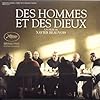Mass Intro …
The Gospel groups
the First Miracles.
Luke 5:17-26
has the ‘astonishing’ account of the Paralytic at Capernaum. It may be well
simple to read the Luke passage very slowly as each word takes its impact. “What
are you thinking in your hearts?”
The heart of
Jesus, the heart of the Paralytic, the hearts of the friends, the hearts of the
Pharisees, the hearts of the throng set the scene.
The word rings
with the description of the “throng2.
The place is
thronged by the range of people in Capernaum, not least the gathering of
Pharisees from every village of Gallilee and Judea and Jerusalem.
The friends of
the Paralytic open the roof of Peter’s house, the reference to Peter’s house details the backdrop.
The Pharisees and teachers are thinking
in their hearts, (the Greek dialogue of heart, διαλογίζεσθε ἐν ταῖς καρδίαις, cogitatis in cordibus), in its
negative sense. In some version This he said, not as being ignorant what their
reasonings were, for it is before said he perceived their thoughts, but to
expose the wickedness of them; in one exemplar of Beza's it is added,
"evil things", as in Mat 9:4 Jesus knew what they were thinking, and
said, "Why do you harbor evil thoughts? (Gill)
The heart of
the Paralytic is filled glorifying God.
The heart of
them all glorified God.
In these days
of solitude and quiet of the snow bound in the community share in the believing
and praise and glorifying God.
There is
question on the astonished throng that, “We have seen incredible things
today”(NAB).
‘Incredible’ is the wrong word.
Of the Paralytic and his friends Jesus calls them “When he saw their faith ….”
The
throng were glorifying, praising God, not that they were incredible,
unbelieving.
As
we offer Holy Mass, we believe and glorify God.
Harmony of Gospels. Matt
9:1-8, Mark 2:1-12, Luke 5:17-26.
“Thronged in Caprnaum. He
heals a paralytic lowered through the roof of Peter’s House.”
He heals a
paralytic lowered through the roof of Peter’s house.
First Miracles:- The Paralytic
Luke 5:17-26
(NAB).
v. 25:Jesus knew their thoughts
and said to them in reply,
"What are you thinking in your
hearts?
v. 25:He stood up immediately before them, picked up what he had been
lying on, and went home, glorifying God.
v. 26:Then astonishment seized them all and they glorified
God, and, struck with awe, they
%%%%%%%%%%%%%%%%%%%%%%%%
 |
| Capernaum, site of Peter's home. |
Above reference to “BEZA” begs for information.
Answer:
Easton's online Bible Dictionary:
(2.) The New Testament manuscripts fall into
two divisions, Uncials, written in Greek capitals, with no distinction at all
between the different words, and very little even between the different lines;
and Cursives, in small Greek letters, and with divisions of words and lines.
The change between the two kinds of Greek writing took place about the tenth
century. Only five manuscripts of the New Testament approaching to completeness
are more ancient than this dividing date. The first, numbered A, is the Alexandrian
manuscript. Though brought to this country by Cyril Lucar, patriarch of
Constantinople, as a present to Charles I., it is believed that it was written,
not in that capital, but in Alexandria; whence its title. It is now dated in
the fifth century A.D. The second, known as B, is the Vatican manuscript. (see VATICANUS.)
The Third, C, or the Ephraem manuscript, was so called because it was written
over the writings of Ephraem, a Syrian theological author, a practice very
common in the days when writing materials were scarce and dear. It is believed
that it belongs to the fifth century, and perhaps a slightly earlier period of
it than the manuscript A.
BEZA:
The fourth, D, or the manuscript of Beza, was so called because it belonged to
the reformer Beza, who found it in the monastery of St. Irenaeus at Lyons in
1562 A.D. It is imperfect, and is dated in the sixth century. The fifth
(called Aleph) is the Sinaitic manuscript. (see SINAITICUS.)














